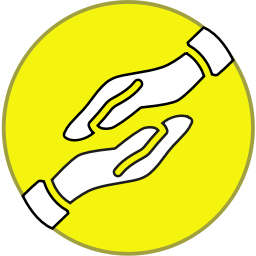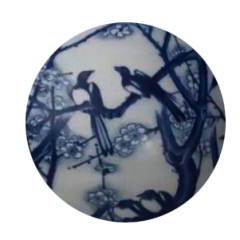All Activity
- Today
-
Starting Cantonese negatively impacting your Mandarin?
Takeshi replied to realmayo's topic in Non-Mandarin Chinese
I studied Mandarin first and learnt Cantonese after. At first, I heavily relied on Mandarin to "generate" Cantonese, and this often ended up generating bad Cantonese. Now my Cantonese is much better than my Mandarin, and I use Cantonese to generate Mandarin. Most people praise(?) my Mandarin by saying I don't sound like a foreigner, but I sound like a Guangdongren. My Mandarin is heavily Cantonese accented and I don't really care. Also note that I have pretty much stopped using Mandarin in daily life, while I have been using Cantonese extensively. That's also that. I have studied Hokkien and Hakka a bit. Neither has affected my Cantonese or Mandarin at all, but studying Hakka definitely confused my Hokkien a lot. I feel like my brain stores Hokkien and Hakka in the same place; after I learnt Hakka and had been using Hakka for a while, every time I wanted to speak Hokkien, I'd think up of Hakka words by accident. I think it's because I'm at a beginner level in both languages (I learnt Hokkien first, and about 10 years before Hakka) -
I have put this book aside for a bit, I have some other texts that I have to read and it turns out I can only process so much Chinese reading in a day. I'll pick it back up when the work-reading is done. I don't remember now which chapter I was at, but I was thinking how I am already at chapter x and the famous love interest hasn't even shown up yet! And the next thing that happens is the love interest showing up. That was fun.
-
Some more information on this: Chinese years are numbered in various ways, one of which is the 'stems and branches' count, which repeats itself every 60 years. The most recent dingwei years have been 1727, 1787, 1847, 1907, and 1967. That this year code is written on the vase is no guarantee that the vase is actually from one of those years, it can be a fake.
-
Travel ideas, driving routes in 青海
realmayo replied to suMMit's topic in Life, Work and Study in China in General
The Chinese C-trip APP has a filter setting which will exclude hotels that don't accept 外宾. But I don't think there's any difference in prices so probably easier to use the Trip.com one anyway. -
@TomsimaYes, you are right. I made a mistake. It's '源林'.
-
Today we are visiting a Winery, as in 葡萄酒 in 山西 , which I've been really looking forward to. I went to a Chinese wine tasting in Beijing a few weeks ago and had some really good wines from this Vineyard, along with wines from Ningxia, Shandong, Hebei, etc. It was a blast!
- Yesterday
-
is that not surely 源林?
-
Top to bottom: 吉羊永用 Auspicious sheep forever, symbolizing good fortune and prosperity. 一支春色映上林 The woods reflects the beauty of spring. 书在丁未春月 written in the spring month of Dingwei Year 源林作 made by Yuanlin (源林)
- Last week
-
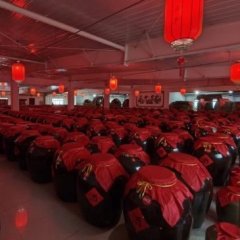
Travel ideas, driving routes in 青海
suMMit replied to suMMit's topic in Life, Work and Study in China in General
The C-trip App I use for hotels only shows me hotels that can accept non-chinese. I've come across a couple places in Qinghai where I can't stay, ie. a city (can't remember the name right now) halfway between Chaka Salt lake and Dunhuang. May have to drive to Golmud and then to Dunhuang. That's all I know so far. Edit: This needs to be English language Trip.com , Not the Chinese C-trip version, which is the same company but will show you all hotels. I still use rmb to pay through WeChat etc, but it knows I'm not Chinese and streamlines the hotels. Can also use for trains, flights etc. Prices are same as Chinese version as far as I have seen. Qu Nar is sometimes marginally cheaper, which I can also use, but it will show me all hotels. -
Travel ideas, driving routes in 青海
Jan Finster replied to suMMit's topic in Life, Work and Study in China in General
I read on Reddit about restrictions for foreigners in Qinghai (areas yiu are not allowed to visit, hotels that so not accept foreigners, etc). Do you have more information? (I plan to travel Gansu/Qinghai for 8 days in July) -
Hi Harryson, welcome to the forums, and what a pretty vase! Please write your posts in English, so everyone can read them. Many people on these forums are still learning Chinese and don't read it well yet.
-
-

How to introduce 杜若滢/杜若滢应该怎么解释
cncorrect replied to aeitodd's topic in Tattoos, Names and Quick Translations
I would introduce the name like this: 杜是杜甫的杜,滢是晶莹剔透的莹加个三点水,“若滢”就是像小水。 -
How to introduce 杜若滢/杜若滢应该怎么解释
need4speed replied to aeitodd's topic in Tattoos, Names and Quick Translations
滢,This word is not common in everyday usage. But 莹 is a word that most people know. So, you can say 左边三点水,右边是晶莹剔透的莹. -
Been really looking forward to this roadtrip, setting off tomorrow morning. Tentative(very much just penciled in), trying to stick mainly to smaller cities. Route looks like this: First stop Datong 大同, around 4hrs drive. Day 1: 北京-大同 Gorgeous day for driving! Rest stop in 河北, and some rest stop Chinglish Walking around 大同古城 (old town). City walls are re-built, but still has a really nice vibe. Everyone we talked to today was really friendly, different accent from Beijing. People are much more surprised at me speaking Chinese than in BJ. Actually, they seem friendly in a way that's aiming to make tourists feel happy in their city, not a bad thing at all, just my feeling. Day 2: 大同 - 太原: Absolutely beautiful weather at the Yungang Grottos. Definitely a place worth visiting. Interestingly on Trip Adivsor all the comments say you cannot take photos in the grottos, but this is certainly not true anymore(all the comments seem to be pre-covid). Caught a bit of the 山西 section of the Great Wall on the top of the mountain, couldn't get much of a shot from the moving car. Hear a lot of fangyan when the locals are talking amongst themselves, not even recognizable words. A local 山西 beer.
-
This is genius.
-

How to introduce 杜若滢/杜若滢应该怎么解释
Jim replied to aeitodd's topic in Tattoos, Names and Quick Translations
My daughter has the character 忞 in her name which also usually needs explaining, but is of course quite easy to describe. -
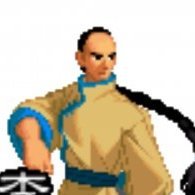
How to introduce 杜若滢/杜若滢应该怎么解释
Tomsima replied to aeitodd's topic in Tattoos, Names and Quick Translations
definitely not limited to westerners, my wife has an unusual character in her name and specifies in this way any time meeting someone for the first time...though point taken that that might be a personality thing! -
So far 一羽毛 is the least enjoyable 張系國 book for me, but I'm not giving up yet. But to give myself something I hope I'll like better, I just bought 炒飯狙擊手 by 張國立. It's a spy novel, but some googling gave me the impression it may be loosely based on a real incident in cross-Strait relations. I want to start with paper because I got a good deal at a local trader, but I'll buy a readmoo copy if it comes to that. To make paper reading less inconvenient I'm: 1. Using a magnetic ruler bookmark. This not only marks my page but even the vertical line of text. If I want to look up a word/character, I can make a mental note of which centimeter it's at. I hate losing my place because I can't really skim in Chinese yet. This is helping a lot. 2. Using https://www.mdbg.net/chinese/dictionary?page=chardict&cdqchc= and https://hanzicraft.com/ to search unfamiliar Characters by bujian. Hanzicraft doesn't actually have a bujian search, but it does very thoroughly list bujian for each character. You can display the children of several bujian at once. So I found a bookmarklet that grabs only the Characters from the page that contain all of the bujian I searched for. It's complicated, but it has a better chance of success than mdbg right now. 3. Using https://mandarinspot.com/annotate?text=>>>WORDSgoHERE<<<&spaces&pr&vocab=1&sort=ord&#vocab to make glossary pages to print and jam in between pages. Otherwise I'll look up the same word multiple times because I'm forgetful.
-
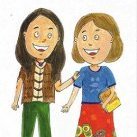
How to introduce 杜若滢/杜若滢应该怎么解释
Lu replied to aeitodd's topic in Tattoos, Names and Quick Translations
My Chinese name sounds a lot like a well-known geographical term, and if I don't specify it people assume I am named after the geographical thing. That's why I often spell it on introduction. As to 滢, is there perhaps a celebrity with this character in her name? That can be a good solution for characters that are usually found in names. I once had a colleague surnamed 袁 who always spelled it as 袁世凯的袁. -
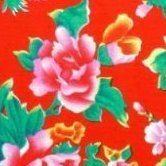
How to introduce 杜若滢/杜若滢应该怎么解释
Demonic_Duck replied to aeitodd's topic in Tattoos, Names and Quick Translations
That's the exact reason you'd do this — if someone needs to write down your name (e.g. you're 报名ing for some 活动). @OP maybe something like 杜:杜鹃的杜 若:若非的若 滢:萤火虫的萤,把下面的虫字换成玉器的玉,左边再加三点水 Maybe there's a less convoluted way of describing 滢 but that's the best I could come up with ¯\_(ツ)_/¯ Edit: or just describe the character components in full, 三点水(氵),草字头(艹),秃宝盖(冖),玉器的玉 -
Just finished Liu Cixin's 球状闪电, and it was a nice experience. Liu had personally witnessed the "Ball Lightning" effect back in 1981, and it inspired him to write this book (published back in 2004, I believe, just before the release of the Three Body Problem series). He entertained a lot of ideas about what might be the truth behind this rare and poorly-understood phenomenon. In the afterword of his book, he says that he used to think that science fiction was about prophesying what might exist in the future, but he eventually changed his mind; science fiction is about creating objects and worlds that might never exist. So he admits that someday we might understand more about ball lightning, and it will certainly contradict all the fantastic things Liu speculated about it in the book. But that doesn't matter to him. The story mainly revolves around the narrator, "Dr. Chen," who is driven to understand ball lightning after witnessing it incinerate his parents right in front of him on his 14th birthday. He eventually meets a young woman by the name of Lin Yun, who likewise witnessed the horrific death of her mother on the China-Vietnam border due to the use of an experimental weapon (genetically modified bees, to be precise). Chen wants to use Ball Lightning for civilian purposes, to benefit humanity. Lin, on the other hand, has a criminal obsession with weapons and wants to use ball lightning to destroy military enemies. Much like the Three Body Problem, the book is rather thin in terms of plot and character development, and spends some time explaining/illustrating a lot of abstract concepts. But Liu takes things in a rather fascinating direction, uncovering entire worlds of exploration within ball lightning (I won't go into detail or spoil it here). This book almost seems to be a sort of prequel to Three Body Problem, because it has a character named Ding Yi (who I'm pretty sure exists in TBP), and during the course of ball lightning research, the team accidentally discovers that aliens might exist (which isn't a central part of this story; it's just mentioned briefly). For my 50th book (and my final book of this more concentrated push to become literate in Chinese), I am reading 在工作中看到中国, a popular book on Weixin Dushu. It's just a collection of web-based articles written by people about their work experiences. Back to the world of non-fiction!
-
How to introduce 杜若滢/杜若滢应该怎么解释
Moshen replied to aeitodd's topic in Tattoos, Names and Quick Translations
Is this customary among Chinese people? I've seen Westerners do this in videos on learning Chinese, but I never encountered a Chinese person who did this when introducing themselves or being introduced in casual conversation. To me, it comes across as pretty pedantic - like someone American introducing themselves as "Chelsey with a 'y,' not like the New York City neighborhood." If I'm just meeting you socially, why do I care how your name is spelled? My husband's name is "Xiaoli," and he once commented to me that it's common as a female name, but with a different "li" than for him. Yet I never once heard him introduce himself to another Chinese by specifying which character he uses for "li" in his name. Of course when someone needs to be able to write your name it's important to be able to explain the spelling clearly. But not necessarily on first meeting. -
Hi! My chinese name is 杜若滢 and I want to know how I can introduce the characters when I meet someone for the first time My friend 孟丽英 says 孟子的孟、美丽的丽、英国的英. I know my 滢 is a little unusual so I particularly meed help introducing this. Thanks!
-

Request for textbook recommendation given my position, goals, and circumstances.
cncorrect replied to Maxim's topic in Resources for Studying Chinese
The language we use every day is often too informal for a textbook. However, the textbook language is often not formal enough for use in a book or newspaper. This is a common problem with textbooks. I have found that after learning English from textbooks, I struggled to understand spoken English .

